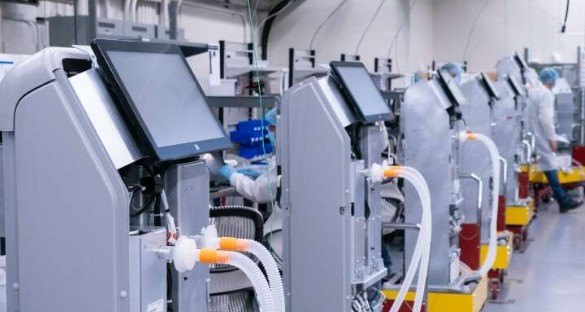Shomporko Desk:-OTTAWA – Only a small fraction of the 40,000 new ventilators Canada ordered for hospitals last spring have already been delivered but several companies involved say their production lines will start delivering the products faster in the next few weeks.
The promise of new arrivals comes as Canada’s chief public health officer, Dr. Theresa Tam, cautioned Friday that a fall surge of COVID-19 cases could overwhelm the health-care system, including its supply of critical care beds and ventilators.
“What we know based on what we learned from other countries and cities that had a devastating impact in that initial wave if you exceeded that capacity the mortality goes up really, really high,” she said.
Flu season and other respiratory infections common in the fall could put added pressure on the system if COVID-19 flares up in a big way.
Tam said there were many lessons learned from the spring, when the government was ill-prepared and without enough protective equipment for health-care workers, and feared a massive surge of COVID-19 would overwhelm the health-care system.
“We are much better prepared than we were before,” she said.
In March, Canadians watched in horror as northern Italy’s COVID-19 outbreak overran its health-care system, leaving doctors to choose which patients got a ventilator and which were left without one. That experience, coupled with warnings it could happen here too, compelled federal and provincial governments to order thousands of new ventilators.
In all, Canada ordered 40,328 ventilators, for an estimated $1.1 billion, and as of Friday, it had just 606 in hand.
Paul-Emile Cloutier, the president of national health-care advocate HealthCareCAN, said there is concern about the status of the government’s orders for personal protective equipment and ventilators ahead of the possibility COVID-19 will surge again in Canada this fall.
Canadian Emergency Ventilators is still waiting for Health Canada approval before it can start shipping its promised 7,500 machines. It submitted the documents in June and it is taking a bit longer than expected to get the green light.
Once that happens, the Public Health Agency of Canada would have to test the product, and then the units that have already been built could be shipped, said Walmsley. He is still hopeful to fill the order by the end of the year.
Thornhill Medical CEO Lesley Gouldie said her company’s partnership with Linamar, a manufacturer based in Guelph, Ont., has been a great success. Thornhill is to provide 1,020 machines to Canada and has shipped 27 so far.
Photo credit: THE CANADIAN PRESS/Paul Chiasson
News source: The Canadian Press











